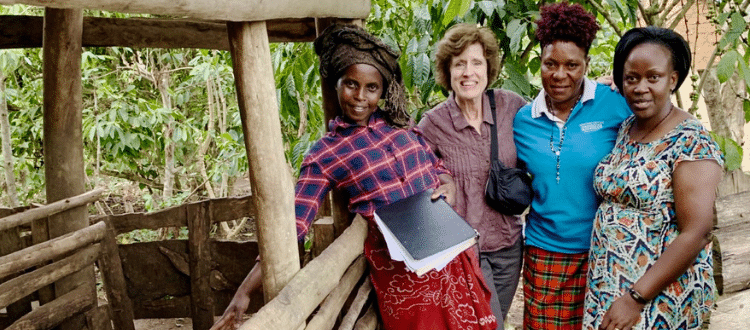Why are midwives important? What impact have they had on mothers’ and babies’ health? As we celebrate midwives across the world today, here are a few ways we’re working to support midwives in Africa through microfinance programs.

SAFE WOMEN PROGRAM
The Safe Woman Program includes four projects: the Piglet Project and the Safe Woman Alternative Project (SWAP) for post-fistula women, and the Ultrasound Project and Clinic Group Project for pregnant women. Each of these four projects has a goal of offering a hand up to marginalized and underserved members of the community by addressing and/or avoiding a devastating injury, obstetric fistula, that is prevalent among rural women who live in extreme poverty. The Piglet and SWAP projects offer a hand up to women who have suffered an obstetric fistula and have been reached by our partner’s hospital to have a surgical repair. The Ultrasound and Clinic Group projects aim to increase the likelihood that pregnant women have a successful labor and delivery, and that they remain healthy. Here are highlights from these four initiatives.

HIGHLIGHTING THE SAFE BIRTH PROJECT
Wouldn’t it be more economically beneficial if women had better odds at remaining healthy throughout labor and delivery? Can these improved odds be sustained through a combination of training and a pay-it-forward microfinancing model? Microfinancing Partners in Africa’s efforts led to some promising answers in 2019.
Sharlene Teefey, MD, a world-recognized radiologist and Microfinancing Partners in Africa Board Member, has worked extensively with the healthcare team of Caritas MADDO in Masaka Diocese, Uganda, to implement a way for midwives at the village health centers to be able to identify and refer women with a high-risk pregnancy to deliver at the hospital.
In 2019, she traveled three times with a team of sonographers to train midwives to use ultrasound machines as an integral part of antenatal care. She advocated with Mindray, which made the ultrasound machines available at cost for this program. To date, 17 village health centers now have ultrasounds and two or more fully trained midwives.

